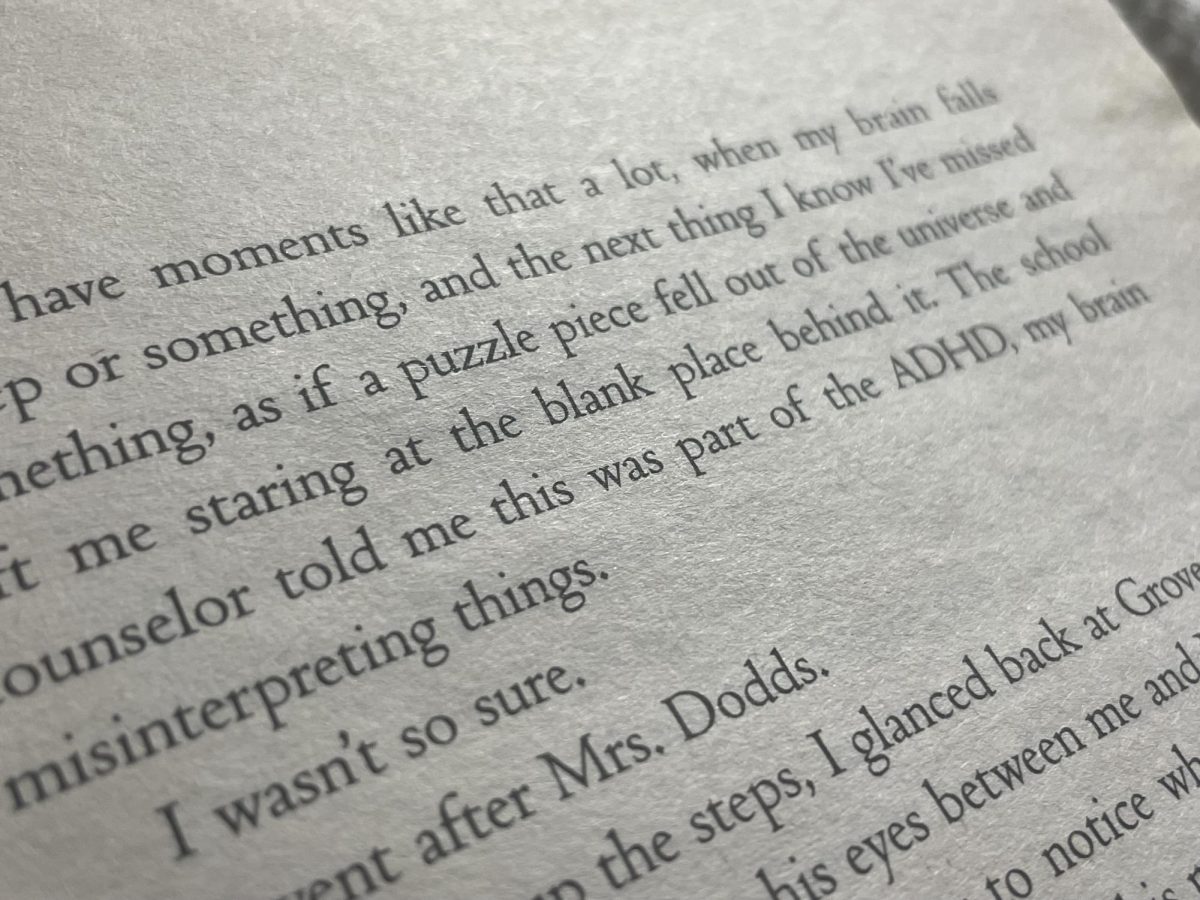Quieting one’s mind is good for the soul
Photograph via pixabay.com under the Creative Commons License
A view of the ocean with rocks finding a balance.
April 23, 2019
When was the last time you sat down and enjoyed the peace and quiet? No, I’m not talking about sitting down and blasting music, talking on the phone with your friends, or listening to music with your favorite ear buds on. I’m talking about no distractions period – a chance to refresh your mind after a long day at work.
Why is downtime important? What is the purpose? With students becoming more involved in their homework, clubs, sports, and more in high school, can they even afford to take time out to relax?
“It’s like a car needing gas – you can’t keep pushing yourself to your breaking point, because it’s not healthy for you at all,” said senior Kassidy Hildebrandt. “Even if you think you don’t need rest, it should always be in your best interest to take at least a few minutes to yourself.”
Right off the bat, here are a couple of different activities you can do to silence the environment and start your quiet time:
- Turn off your device for 15-30 minutes. Start to engage your mind in an activity like reading books.
- Go outside for some fresh air, whether taking a walk around your neighborhood or sitting outside on your porch.
- Listen to the surrounding environment – what do you hear? The wind and trees rustling? Maybe some chimes? What sound soothes you most?
A misconception among high school students is that downtime means to shut off all devices and stare into the corner of a wall for hours on end. In reality, however, it’s more robust than just that.
The official definition of downtime is “a time of reduced activity or inactivity”, so an individual doesn’t have to simply do nothing at all; rather, a student can choose activities that allow the brain to “cool down.”
The plain truth is that downtime is an essential part of every human’s life, whether he or she realizes it or not. Recent studies suggest that taking time to turn off electronics and music restores the nervous system of one’s body as well as increases energy. By doing this, it allows one’s mind to not be engaged with much activity.
Yet, it does not just end with one’s inner body and energy. Location matters, as well. Where a person works and goes to school is also a major factor in determining how much quiet time needed in a day.
According to a website called Healthy Hearing, it is estimated that approximately 30 million people in the U.S. are exposed to dangerous noise levels at work, such as the construction field, or in musical departments. Close to $242 million dollars are spent for workers’ compensation for loss in hearing. Emotional stress and reduced productivity could also be early signs that lead to hearing loss.
This, combined with noise outside of work, such as at one’s own home, can be devastating for one’s physical and mental health. To work in a quiet environment is the healthier alternative.
The problem continues to ramp up if people spend time in noisy environments, filled with disruptions. A study conducted by researchers at the University of California reveals that a typical office worker only gets an average of 11 minutes between each interruption, while it takes roughly 25 minutes to return to the original task after an unscheduled disruption. These estimations give a good idea of how uncontrolled interactions experienced in open offices reduce productivity.
“Down time lets your brain relax from stress and stop and think,” said 8th grader Jarod Ruhl. “Not only that, down time can help you do things you love with the people you love. It can also help take your mind off something bad or stressful. Taking breaks can help with help reach peace.”
So when it comes to quiet time, what exactly are the benefits? According to research reports by crm.org, the benefits are based upon five major factors: silence can reduce stress, improve cognitive functions, increase creativity over a period of time, enhance one’s mood, and help an individual focus better.
Without the necessary downtime, sleeping schedules can also be affected heavily. According to the National Sleep Foundation, high school students need approximately 8-10 hours of sleep each night to function best, and it has been found that 15% are reported to sleep 8 and ½ hours on regular school nights. This not only makes students wake up tired and irritable, but it limits the possibility to learn, listen, concentrate, and solve simple problems.
“Down time is important because just as our brain needs sleep it needs rest while we’re awake or else it can’t function properly,” said duel-enrollment student Allura Haddad. “If we’re in a state of tension at all times, we’ll wear ourselves out and never be able to grow or even function properly.”
So, what can people make the most out of their moments of quietness? Meditation is a super simple alternative to just standing around and not doing anything productive; it allows anyone to harness their breathing and control their level of stress in a given moment.
Teachers and substitutes at Stroudsburg High share similar feelings.
“I’m getting into mindfulness and meditation, and it really comes down to is finding a way to stay present in a moment,” said substitute teacher Mr. Courtland Nesley. “This is going to sound simple, but breathe. Find the time to literally figure out your breathing – is it deep or shallow? That’s how I find my peace.”
A professional form of opinion isn’t too uncommon either.
Take Sonya Lassen, a therapist at Pocono Behavioral Wellness on Main Street. “There is a thing called mind shatter, and when your mind is in that mold of being cluttered, you can’t really think clearly and brainstorm possibilities or problem solve. So calming your thoughts not only helps you relax, but it also heals the mind and body; it allows the mind and body to connect to allow a more clearer plain, and make better choices and better decisions.”
Whether anyone is out in public or in the comfort of home, it’s always important to take the few extra moments to enjoy the peace and serenity of the environment. Overloading one’s brain with noise and stress will likely lead to less productivity and less happiness. But when someone takes in what’s around them, they start to appreciate life’s moments of calm a little bit more.
10 Tips to Improve Your Concentration in Meditation






































































































